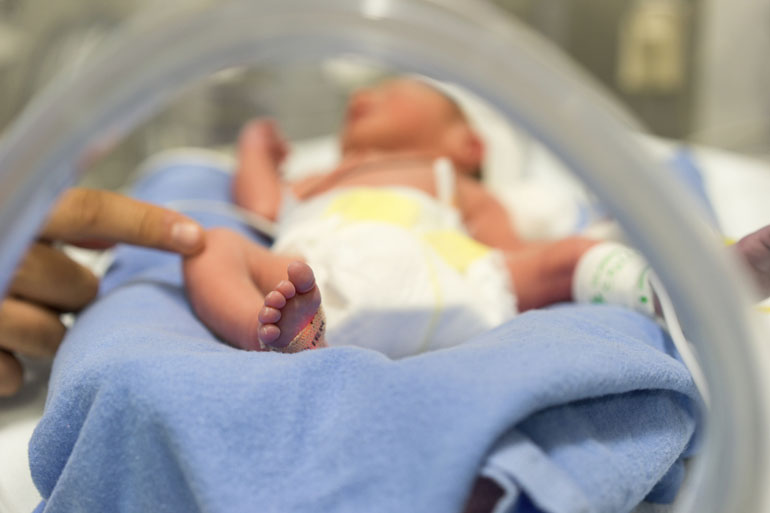Can’t see the audio player? Click here to download.
About 380,000 babies are born too soon every year in the United States, a preterm birth rate that’s far higher than most high-income, developed countries.
Even with so many families facing the realities of a premature child, predicting the long-term health of a baby is difficult, and doctors have an even tougher time talking about those predictions with parents.
On Thursday’s The Takeaway, KHN’s Jenny Gold explained that in the largely underreported workings of the neonatal intensive care unit, or NICU as it’s referred to, many families feel lost and isolated at a time when they are supposed to be happiest.
Kate Hopper’s daughter, Stella, was born eight weeks early and spent the first part of her life in the NICU.
“There was a sense that you don’t ask, really, ‘Is she going to be okay?'” Hopper explained. “There was really only one point, after I found out that Stella had a small brain bleed, I said to the doctor, ‘What does this mean?'”
Today, Stella is a healthy, happy, soccer-playing 12-year-old, and Hopper, the author of “Ready for Air: A Journey Through Premature Motherhood,” volunteers at the NICU, helping parents who are making tough decisions about their baby’s health and future.
The Takeaway is a co-production of Public Radio International and WNYC Radio in collaboration with The New York Times and WGBH Boston.
